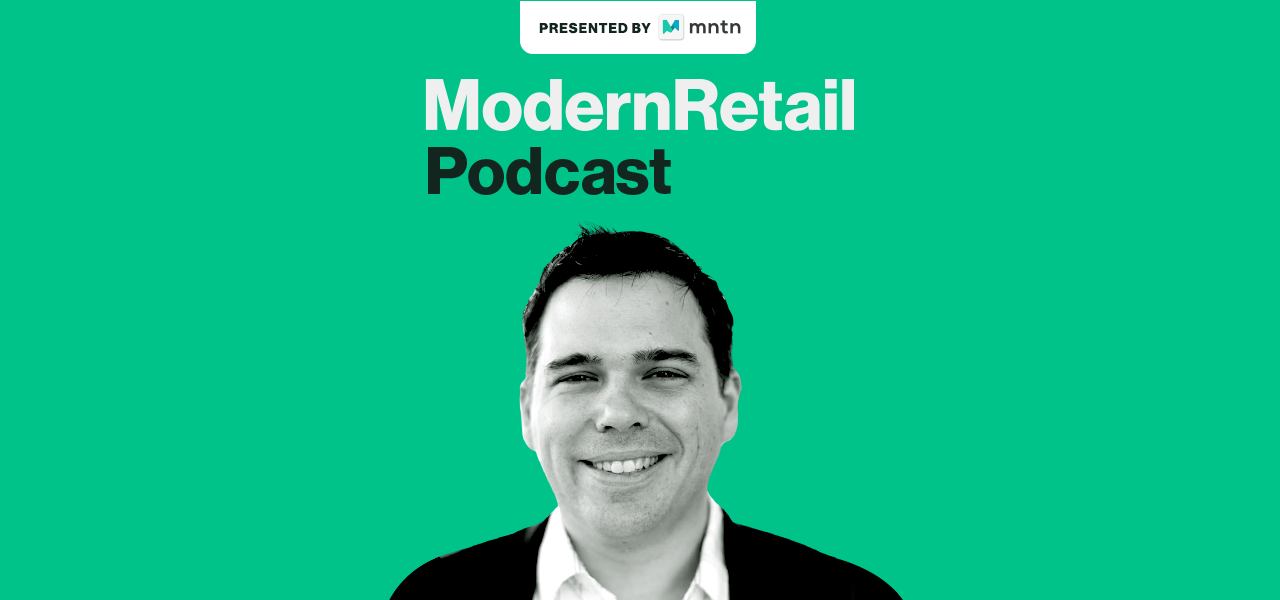‘Our goal was not just to bring oat milk to Brooklyn’: Oatly’s North America president on the brand’s growth plans

Subscribe: Apple Podcasts | Stitcher | Google Play | Spotify | RSS
It’s 2021, and oat milk has become a mainstream phenomenon.
One brand leading that charge is Oatly. It’s a nearly-30-year-old Swedish company, but only expanded to the U.S. in the last five years. But its expansion helped spur a nationwide acceptance of dairy alternatives.
Mike Messersmith, Oatly’s president of North America, joined the Modern Retail Podcast this week and talked about the brand’s growth, as well as the category as a whole. Oatly started its U.S. expansion in coffeeshops, and that helped it expand into retail; “people discover it, they talk about it and they want to buy a larger carton at the grocery store to bring home,” he said.
With that, Oatly is now available nationally and in major retailers including Target and Whole Foods. In tandem with this increased distribution, the last two years have been huge for the milk alternative brand. According to Messersmith, over half of Oatly’s customers in 2020 were new to the brand that year. According to its most recent earnings report last June, the company brought in $146.15 million in revenue, a 53% jump from the year before.
Ad position: web_incontent_pos1
And while oat milk is often considered a more bourgeois product, Messersmith said he is intent on getting everyone in the country to drink it. “Our goal in this was not just to bring oat milk to Brooklyn and the arts district in LA,” he said. “I want people ordering oat milk lattes where I grew up in northeast Pennsylvania.”
So far, those plans seem to be working out. The milk alternative category as a whole is exploding. Plant-based milk saw 20% year-over-year growth in 2020, hitting $2.5 billion in revenue, according to data from Spins. Oat milk sales specifically tripled in 2020.
For now, his focus is on getting people to try oat milk, as well as very conscientiously expand Oatly’s product line. Last summer, for example, the company launched a series of soft-serve flavors.
Ad position: web_incontent_pos2
Even with this growth, Messersmith was clear that his strategy isn’t to take things for granted. “We’re still at the very early stages.”
Here are a few highlights from the conversation, which have been lightly edited for clarity.
Keeping a startup mentality
“While we’ve come a really long way — we’ve added a ton of partners, we’ve had gotten into different categories — honestly, we’re still at the very early stages… I’ve been doing this for four and a half years. It feels to me like, well, we’re done with [the getting customers to try the product] part. But it’s still very early stages of real like broader populations hearing about oat milk, trying oat milk for the first time. Our goal in this was not just to bring oat milk to Brooklyn and the arts district in LA. I want people ordering oat milk lattes where I grew up in northeast Pennsylvania — so that journey is ongoing. I mean, more than half of our consumers — 50%, 60% of our consumers — came into the brand even just in the last year. And so we feel like we’re still at the early stages of that discovery trial conversion cycle.”
Oatly’s balanced retail strategy
“In the first year, I think [sales] were like 90%-plus on-premise coffee shops. And then if you look at last year, this time last summer, you had a lot of coffee shops that were shut down. So I think we were roughly 75%, retail last year. But today, through hard work, creativity and determination, those on-premise accounts — the food service, coffee shop accounts — were much more even balanced of 50/50. That was an intention for Oatly from the beginning. If we were just a business that focused on grocery stores, we can always point to Nielsen results and all these other things. But we see the value, and it was the intent from the beginning, [in having] a really balanced on-premise retail approach.”
A focus on growing sustainably
“I think we were fortunate in that the dairy alternative milk segment [has become] a household staple item. Lots and lots of people at home — with kiddos at home — people working from home are looking for cartons of Oatly and almond milk and all of this. Within that, we’ve always seen a lot of interest in our brand, and people wanting to carry it. We are always trying to be really as thoughtful as we can about scaling our operational footprint, especially with the uncertainty that we’ve had over the past year… We try our best to not break promises and commitments to people. And so, at times, we’ve said no more than we’ve said yes on things. That’s a hard thing to do at the time, but [it] is the right thing in the long run.”
